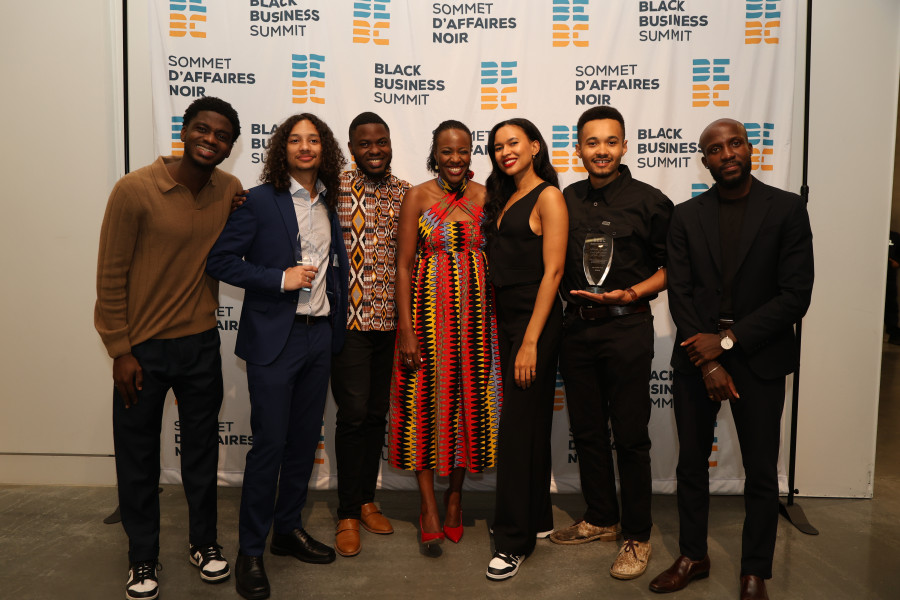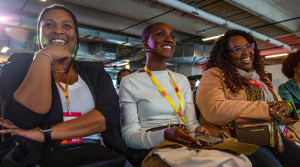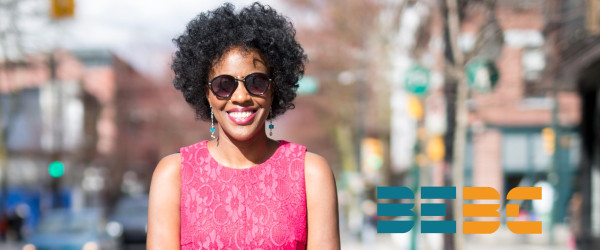Competition was stiff! The winners vied for the $25,000 top prize alongside 230+ other contestants in the national competition. More than 33,000 people cast a ballot in a round of public voting before the top 5 finalists pitched their ideas live to a panel of judges at the Black Business Summit in Vancouver as part of a program meant to combat racial barriers to business funding.
The funding is designed to help Black entrepreneurs who may be otherwise shut out of loans, grants or other business financing because of systemic and racial business barriers.
{https://www.instagram.com/p/C7stFRisfbc/}
Nanette Sene, founder of Juno Technologies and brothers Walid and Djalil Baba-Moussa founders of OneTrip Technologies, took home $25,000 grand prizes, respectively. The judges deliberated for two hours over which of them should get the top prize but ultimately decided that both should win!
The Black Opportunity Fund stepped in with the additional $25,000 so both businesses could take home the top spot.
{https://www.instagram.com/p/C7xV5WtshcL/}
“Juno Technologies is a game changer and OneTrip will revolutionize online sales for smaller retail outlets,” said Craig Wellington, CEO of The Black Opportunity Fund, and one of the judges.
Juno Technologies is a Montreal-based start-up innovating in the field of women’s health. Seno has created a wearable device which relieves menstrual cramps. “Menstrual cramps affect 80% of women. Last autumn, we completed its first pilot study and saw impressive results: a 79% reduction in menstrual pain! Juno is now preparing for its commercial launch, scheduled for 2025,” says Sene.
Sene’s inspiration came from her own experiences and expertise. “With a background in physical therapy, I gained insights into alternative pain management methods. Transitioning to mechanical engineering, my passion for innovation deepened, particularly nurtured during an entrepreneurship course. Drawing from my own struggles with menstrual pain and a desire to minimize medication dependency, I conceptualized Juno, leveraging my interdisciplinary knowledge and personal journey.”
Sene will be using the funds to deliver the first batch of Juno products to the waitlist of 200 subscribers, and will have manufacturing costs partially covered.
OneTrip, which is also based in Montreal, is an AI powered e-commerce platform that gives independent grocers the technology to compete with the big players. “Using our AI technology, they can quickly digitize their products and create an online store. The platform connects with logistic companies to outsource their deliveries and their existing point-of-sale system at the physical store to sync the inventory and prices.
Finally, we offer digital marketing tools that help them increase their sales, such as email/sms marketing to send their coupons to customers. As immigrant students, my brother and I used to be frustrated with grocery shopping during winter. The only way to access the specialty products sold by independent and local grocers was to go there physically. Those merchants are the heart of the community. We noticed that you could easily order online from restaurants, and even the big grocery chains started offering online shopping,” says Baba-Moussa.
Baba-Moussa and his brother intend to use the winnings to finalize the development of their AI technology. “We developed an algorithm with an accuracy of 85%. To complete the development, we will use the prize money to increase the accuracy and embed it into an app so that every merchant can self-onboard, no matter their location. They simply have to take a picture of the product with their smartphone, and the AI will automatically identify and extract the product features, process the image to increase the quality and instantly add it online. This will help us scale across Canada and abroad.”
Three other finalists received cash prizes of $6,500:
- Mwenda Dyck, founder of South Central Greens, located just outside Vancouver
- Evans Eugene Osei, founder of Work and Chill from Toronto and
- Stéphane Beaulne, founder of Komino from Montreal.
Dyck started South Central Greens back in 2022 after conducting a research experiment at university. “I noticed a gap in the produce supply chain post-pandemic , and I wanted to explore a way to improve our local food system by reducing its reliance on imported produce. Our current food system is unsustainable, it impacts the environment in a negative way and has led to increased levels of food insecurity here in Canada. I was also tired of paying $6 for a box of spinach, so I knew there must be a better way, especially with the rapid advancements in vertical agriculture.”
{https://www.instagram.com/p/C4csRkOuEo3/}
After getting great results in this experiment, Dyck decided to develop the vertical agriculture system further and now has a versatile system that can grow an abundance of produce year-round with minimal costs. “My goal is to see these growing systems spread throughout the nation and eventually across the globe in areas that experience food insecurity on a micro level, such as apartment blocks, remote reservations, and food deserts, once my pilot farm is complete.”
Dyck will use the funds for contractors who have already started renovating the building that they will be moving into for my pilot farm; the rest will go towards a marketing budget.
Beaunine created Komino, a productivity platform that helps nonprofits better manage their teams, volunteers, and community to achieve their desired impact. “Recognizing the challenges nonprofits face, such as high service demands coupled with limited resources, staff, and volunteers, we created a solution. Komino is that solution, a tool that enables nonprofits to organize their initiatives effectively, despite these limitations, and amplify the impact of their volunteers.”
The idea came from Beaunine’s past frustrations with organizing community initiatives and group actions. “I found it very hard to manage a team, integrate volunteers, and have a lasting impact on the community you're trying to help. I saw a need for a platform that allows any organization or individual to organize initiatives to improve their community.” Beaunine will use the funds to scale and improve its platform’s mobile app.
Osei used pandemic isolation to build a new platform to encourage community called Work and Chill. “Post-pandemic, two-thirds of employees are disengaged; employee well-being is a critical and ongoing concern in the workplace. At Work and Chill, we strengthen employee relationships in the workplace through gamification. Our platform lets companies browse and book engaging experiences for co-workers to enjoy together. Everything from team-building challenges to events like game shows, online team parties and more.”
Osei tells us that he loved hosting game nights at his condo and saw this platform as an opportunity to unite people. Now, Work and Chill hosts game nights and more for Google, Uber, Salesforce, Dropbox, and some of the biggest companies in the world, helping them build stronger, more connected teams in this new remote environment. Osei intends to use the winnings to circulate the Black dollar and hire independent contractors within the Black Entrepreneurs & Businesses of Canada Society network who are skilled in various areas that can support his company's growth.

 By
By 






